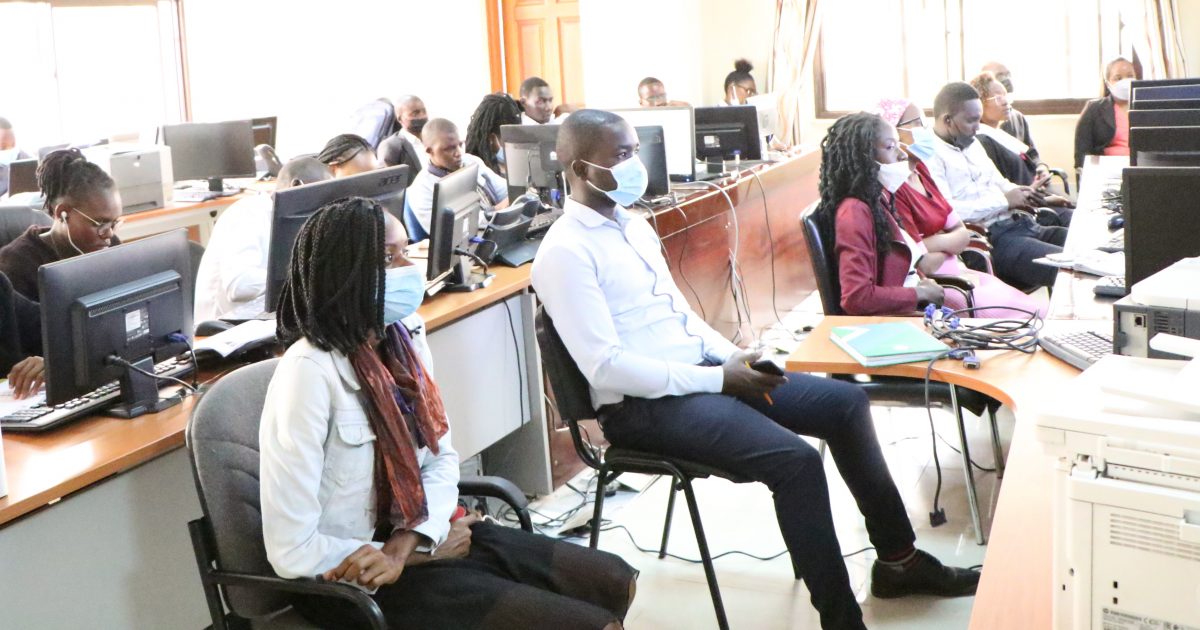Public Service Commission (PSC) has recruited 3,267 interns under the Public Service Internship Programme (PSIP), to work in the public service for a period of one year.
The fourth cohort interns have been deployed to ministries, departments, agencies, state corporations, statutory commissions, constitutional commissions and independent offices, to gain work and practical experience, requisite skills and competencies required by the job market and for entrepreneurship.
The Programme which is part of the government’s strategy to mitigate youth unemployment by providing unemployed young graduates an opportunity to gain skills required by employers and to compete in the job market has seen at least 12, 266 youth benefit from the internship programme.
Interns recruited in the first and second cohort which began in 2019 for 2019/2020 were 5,565, while the third cohort for 2020/2021 had 3,434 interns with each cohort receiving a funding of Sh1 billion from the government.
Speaking during the official opening of the virtual induction of the Fourth Cohort of graduate interns on Tuesday at Commission House, the PSC Vice Chairperson, Charity Kisotu, said PSIP is one of the flagship programs of the Public Service Commission under the Strategic Plan 2019-2024.
Kisotu expressed the Commission’s gratitude to the National Assembly for allocating resources to support the roll-out of the programme, and affirmed that PSC was in discussion with Parliament to enhance the budgetary allocation, to enable the programme increase the number of recruits.
“The Commission will endeavor to expand the programme through Public-Private-Partnership arrangements, as well as continuous monitoring and evaluation for new lessons to make it even better and bigger,” said the Vice Chairperson.
She said since the roll out of the programme three years ago, there has been improved public service delivery through injection of renewed energy, fresh ideas, innovative and techno-savvy mindset from the youthful interns in institutions where they are deployed.
Kisotu noted that their contribution enhances human resource capacity, reduces overall employee workload, provides opportunity to screen and evaluate future employees for quality talent besides creating a ready pool of talent.
“This programme is crucial as it provides the government an opportunity to foster relations with citizens through mentorship and training, renewal of the public service through inclusion and to understand the needs of the youth and existing skills gaps,” she stated.
The Vice Chairperson called upon the interns to be patriotic and to exercise integrity, honesty, professionalism, personal commitment, as well as protect the resources under their care during the internship.
She added that the country is banking on the young people it trains to transform the public service for prosperity and posterity.
“You will be required to adhere to the work ethics that are necessary for upholding the integrity of the public service,” she advised, and expressed confidence that the skills the interns will gain through the programme will prepare them for the global and ever-evolving work environment.
She at the same time called upon the institutions where the interns have been deployed to develop mentorship programmes and workplans for the interns as it will help them to acquire the relevant skills and knowledge in their areas of specialization.
Kisotu also encouraged the unemployed youth to apply for public service job openings that the Commission regularly advertises in the media.
In her remarks, PSC Commissioner, Dr. Mary Mwiandi said the interns will be paid a monthly stipend of Sh25, 000.
PSC Secretary and Chief Executive Officer, Dr. Simon Rotich, said the fourth cohort had attracted a total of 46, 367 applicants out of whom 7,406 from all the 290 constituencies were shortlisted and interviewed.
Public Service Commission selection process ensures that all the recruited interns represent the face of Kenya, as the process is guided by merit, ethnicity, gender, disability status, minorities and the marginalized.
By Bernadette Khaduli





